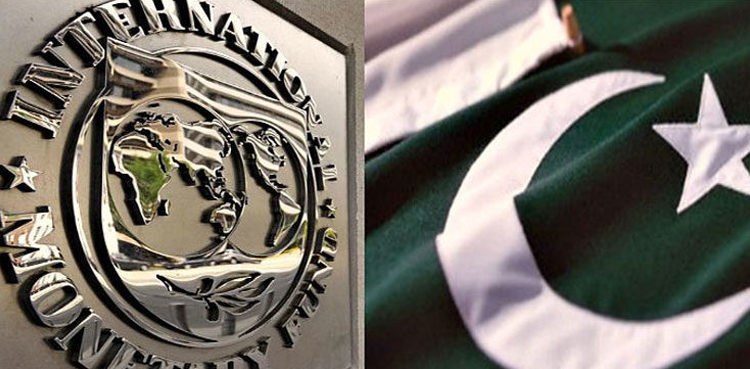ISLAMABAD: The International Monetary Fund (IMF) in its declaration released on Friday (today) stated that Pakistan’s economic growth rate is projected at 2.4 per cent during the current financial year of 2019-20 and inflation is expected to decline in the coming months.
The delegation of the International Monetary Fund (IMF) led by Ernesto Ramirez Rigo concluded its visit to Pakistan during September 16–20. A declaration was released by the financial institution after its mission completed its visit to Pakistan after reviewing economic developments since the start of the Extended Fund Facility (EFF).
Ernesto Ramirez Rigo along with his delegation met top government officials during the visit and discussed progress in the implementation of economic policies.
Read More: IMF termed early results in economy as ‘very encouraging’: Hammad Azhar
Mr Rigo issued the statement at the conclusion of the staff visit, said, “While the authorities’ economic reform program is still in its early stages, there has been progress in some key areas. The transition to a market-determined exchange rate has started
to deliver positive results on the external balance, exchange rate volatility has diminished, monetary policy is helping to control inflation, and the SBP has improved its foreign exchange buffers.”
“There has been a significant improvement in tax revenue collections, with taxes showing double-digit growth net of exporters refunds. Moreover, the FBR is undertaking significant steps to improve tax administration and its interface with taxpayers.”
“There has been a significant improvement in tax revenue collections, with taxes showing double-digit growth net of exporters refunds. Moreover, the FBR is undertaking significant steps to improve tax administration and its interface with taxpayers.”
Read More: IMF delegation calls on PM Imran Khan
“Staff and the authorities have analyzed the worse than expected fiscal results of FY2018/19, which were partially the result of one-off factors and should not jeopardize the ambitious fiscal targets for FY2019/20. Importantly, the social spending measures in the program have been implemented.”
The transition to a market-determined exchange rate has started to deliver positive results on the external balance, exchange rate volatility has diminished, monetary policy is helping to control inflation, and the SBP has improved its foreign exchange buffers.”
“The near-term macroeconomic outlook is broadly unchanged from the time of the program approval, with growth projected at 2.4 percent in FY2019/20, inflation expected to decline in the coming months, and the current account adjusting more rapidly than anticipated. However, domestic and international risks remain, and structural economic challenges persist. In this context, the authorities need to press ahead with their reform agenda.”
According to the declaration, the financial institution announced that a IMF team will return to Pakistan in late-October to assess the end-September program targets.



Leave a Comment